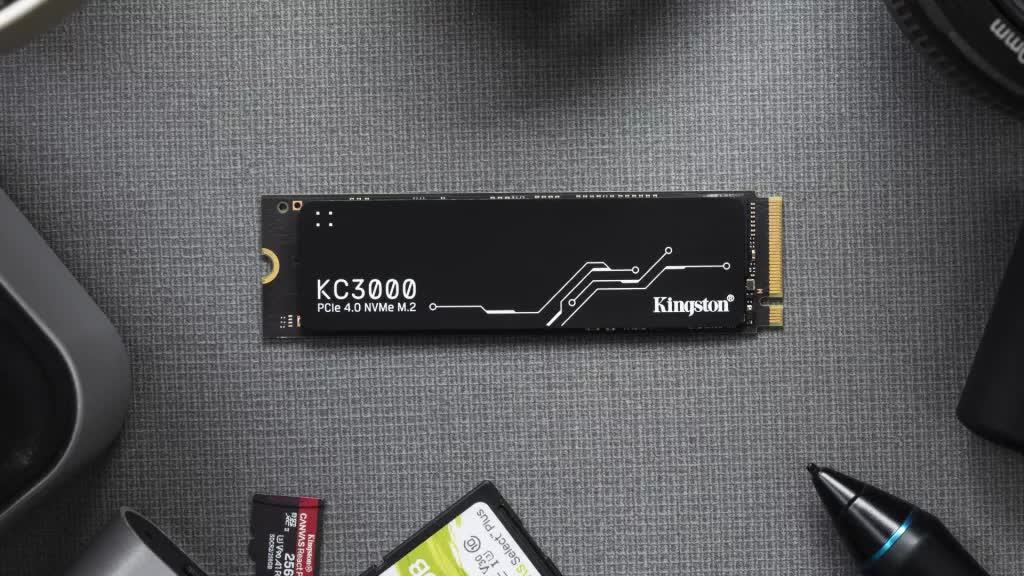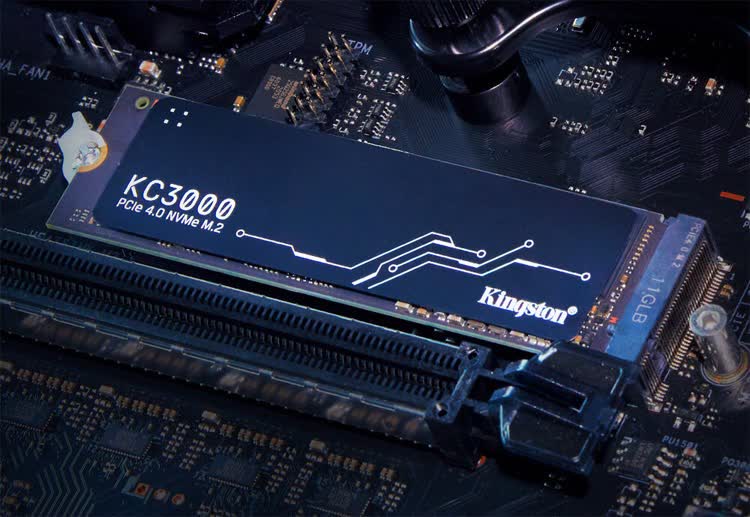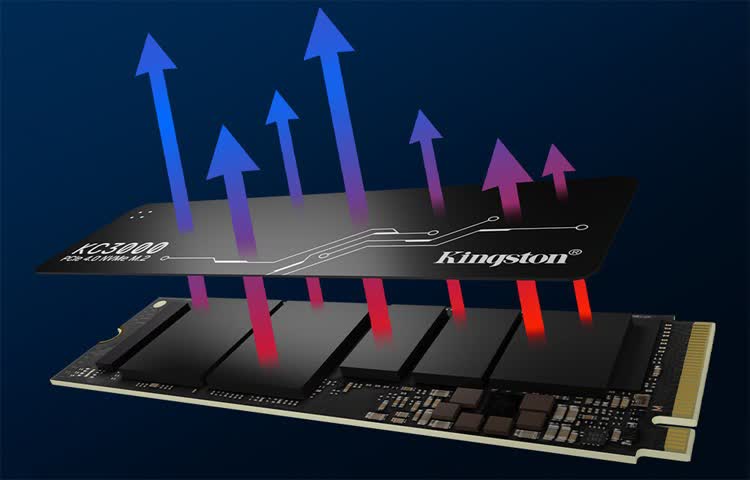In brief: Kingston Technologies has joined the list of companies offering blisteringly fast PCIe 4.0 NVMe SSDs by announcing the KC3000. Like other drives of its ilk, it features monstrous sequential read and write speeds— up to 7,000MB/s, in this case—while reaching up to 4TB of storage capacity.

The KC3000 features the same combination of Phison E18 controller and 3D TLC NAND found in Seagate's FireCuda 530 M.2 gaming SSD, another PCIe 4.0 drive that can hit 7,000MB/s. Not all variants of Kingston's SSD can manage those write speeds, though, only the 2TB and 4TB models are capable. There's also a 1TB option with a still-impressive write speed of 6,000MB/s and a 512GB model with a 3,900MB/s write speed, but all the drives can hit 7,000MB/s read speeds.

The random 4K read and write operations per second also vary based on the model. The top two variants offer up to 1 million IOPS, while the smaller capacity drives feature 450,000 to 900,000 operations per second. The drives also vary in thickness: the 512GB and 1TB SSDs are 2.21mm thick, while the 1TB and 2TB versions are 3.5mm.

With a 10.2 watts active power consumption, the KC3000 comes with a low-profile graphene aluminum heat spreader. Durability-wise, the total bytes written (TBW) for each drive is 800 times its capacity, translating to 400TB - 3,200TB. You also get a five-year guarantee.

The Kingston KC3000 arrives on October 25. No word yet on price, but for comparison, Seagate's similar FireCuda 530 M.2 costs between $140 for the 500GB version and $950 for the 4TB option, though the heatsink variants add between $20 - $50 to the prices.
https://www.techspot.com/news/91766-kingston-joins-7000mbs-nvme-ssd-club-kc3000-drive.html